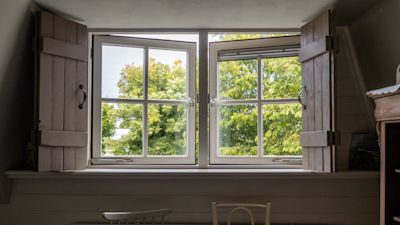Explainer
How to keep your house cool in hot weather as temperatures soar

Whilst we all look forward to some warmer weather, when temperatures are too hot they can pose a real risk to our health - especially as we get older.
There are a number of ways to keep your home cool during hot weather, which is even more crucial with so many people working from home.
Tips for keeping your home cool during hot weather
Keep blinds down, especially in rooms you’re not using, and windows closed when it’s cooler inside than out.
If you do need to open a window, do it strategically so there is a breeze moving through the house. This means opening windows at opposite sides of the house or room, ideally on the shady side, and keeping doors open so the air can move through freely.
Make sure your heating is off if you have it on a timer.
Place some bowls of water around the house to help cool the hot air.
Invest in a fan, but use it wisely. Since heat rises, the coolest air in your house is going to be at floor level. Set your fan on the floor and point it upwards.
Try the 'ice fan' trick, where you place a bowl of icy water in front of your fan. Then, as the ice evaporates, it can make the air feel pleasantly cool as it's blown around the room.
Cool off with cold water. A damp cloth or a splash of water on the back of your neck is better at cooling you down than a fan. And remember to take nice cool baths or showers.
Fill a hot water bottle with cold water and put it in the fridge - to take to bed, or to put behind you like a cushion.
Wear light-coloured, lightweight cotton clothing.
Limit physical activities like housework and gardening to the early morning or evening.
Check how you’re storing your medication when it gets particularly hot - most should be kept below 25°C so it might be best to keep them in the fridge when it's really hot.
Allow your feet to breathe by wearing open toe sandals.
Replace your lightbulbs with LEDs. They are cooler in the heat and use much less energy.
Drink plenty of water to avoid getting dehydrated. Limit drinks with caffeine and avoid alcohol as it can make dehydration worse.
Eat even if you’re not feeling too hungry. It is recommended to have more cold foods like salads and fruits as they contain a lot of water. Avoid heavy meals as they take more energy to digest - rising your temperature.
Get someone to check up on you if you live alone - Age UK suggests asking a relative or friend to check in on you during periods of extreme heat if you live alone.
What are the symptoms of dehydration, heat exhaustion and heat stroke?
Signs of dehydration can include confusion, cramps, dark urine and feeling weak. Keeping hydrated throughout the day is important, so you don't get to the point where you start to feel thirsty.
Symptoms of heat exhaustion include headaches, dizziness, nausea and a fast pulse. If you feel unwell, lie down in a cool room, drink plenty of water and cool yourself with a splash of water.
Heat stroke is a life-threatening condition and can develop if heat exhaustion is left untreated. Call 999 immediately if you think you or someone might have heatstroke with symptoms including falling unconscious and seizures.